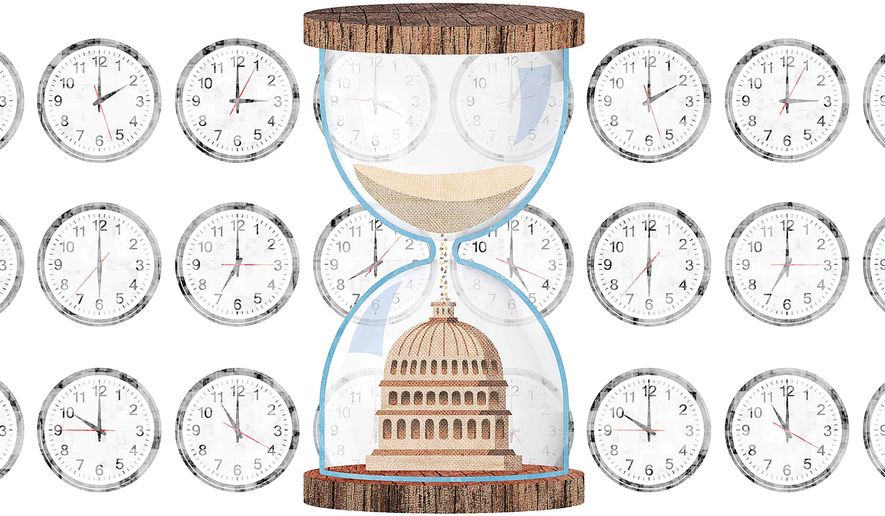OPINION:
As our first president, George Washington knew that everything he did set a pattern for those who would follow. He served two terms in office, then stepped down. He declined all efforts to get him to stay.
“Prudence on my part,” Washington wrote to a supporter, “must arrest any attempt of the well meant, but mistaken views of my friends, to introduce me again into the Chair of Government.”
Hence, George Washington established a de facto framework of term limits for those holding elective office. And this framework demonstrates a widely respected principle in American politics. It’s from the Declaration of Independence: Governments derive their just powers from the consent of the governed.
Those who would be elected leaders — as we were as governors of New Mexico and Massachusetts — must recognize their time-limited role.
We came to office not to seek for our own power, but to implement sound principles and to benefit all the people within our states. We then passed the torch to the next generation of leaders.
Imagine how different — and better — policy and politics in America would be if term limits applied to the United States Congress.
We didn’t always have representatives and senators as career politicians. At the end of the 19th century, for example, a member of the House of Representatives served an average of 3.5 years, and a senator served an average of 6.5 years. By the year 2000, those numbers were 9.0 years for a representative and 11.0 years for a senator.
This process of becoming career politicians is one reason Congress is so unpopular. It’s unhealthy to be constantly seeking re-election. It’s like a shepherd feeding himself on the lambs in his own flock, instead of fending for and protecting them.
Some politicians argue that term limits undercut political experience. The public doesn’t buy it. Three-quarters want term limits. They know that term limits only cause problems for the career politicians.
The last two decades have given our nation even more confidence in this gut belief. Term limits for state and local elective office are now more of the norm than not. Indeed, 36 states limit governors to two terms in office, including New Mexico.
Also, about one-third of states place term limits on their legislatures. Those of you who live in those states know that, in general, legislators are more open and more willing to talk with everyday citizens. It’s only natural that citizens feel more connected to their elected officials if they are citizen-legislators.
Governing with term limits, I saw politicians do the right things for the right reasons — instead of whatever it took to get re-elected. Term limits gave me the freedom to use my best judgment as governor.
Term limits are reassuring for citizens. They know that they minimize the opportunity for corruption and centralization of power within a single individual. That’s not the American way. We believe in the rule of law, not the rule of a strongman or -woman.
This is why Bill Weld and I were proud to sign the pledge by U.S. Term Limits, a leading national organization seeking to limit terms for elected officials, that we will support a constitutional amendment for term limits on members of Congress.
Current presidential candidates Donald Trump and Hillary Clinton have not signed the pledge.
Yet pledging support for term limits is simple common sense, at least for someone who isn’t seeking power as a career politician.
• Gary Johnson, a former Republican governor of New Mexico, is the Libertarian Party’s 2016 presidential nominee. Bill Weld, a former Republican governor of Massachusetts, is his running mate.




Please read our comment policy before commenting.